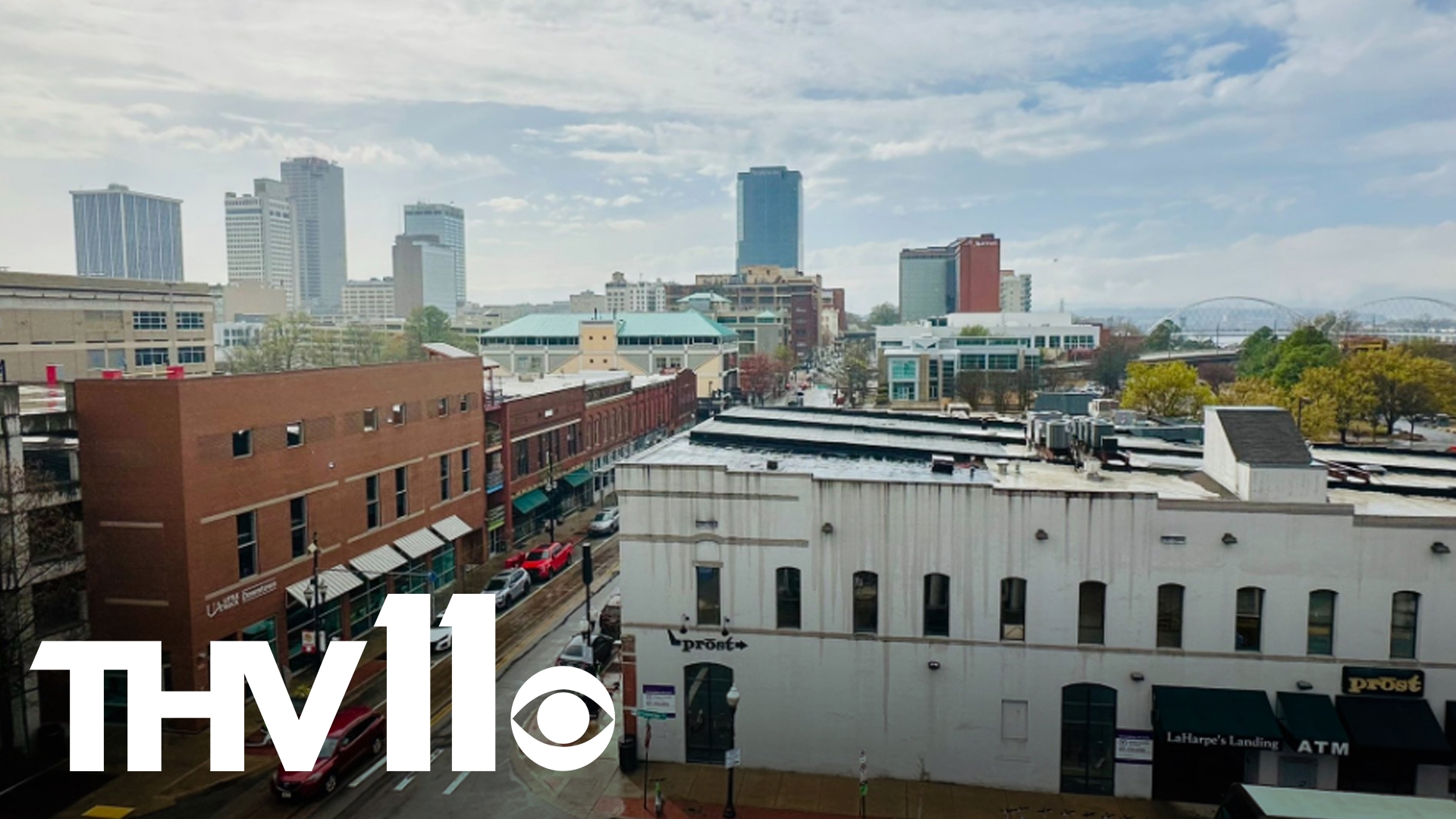LITTLE ROCK, Ark. — As we head into the summer months, temperatures are rising, and the City of Little Rock is taking action to cool down some of the hottest areas.
The results have arrived from last year's heat study, in which more than 60 people met to map heat islands in Little Rock.
Little Rock Sustainability Officer Lennie Massanelli said some results weren't surprising.
"It was nice to see the confirmation and the data of the morning route, where heat would not dispel during the night because it's concrete, asphalt, building material where those things are concentrated," Massanelli said. "That's where heat is absorbed, and then it's not let go of in the night."
Massanelli said the report shows a lot of urban heat islands downtown.
"University all the way across where 630 is," Massanelli said. "All the way into downtown to East to where 30 is."
The reason is the parking lots, buildings, and interstates.
"That's exactly the recipe for heating up Little Rock where it just can't go back into the atmosphere," Massanelli said. "It just stays locked in very close to the ground."
According to Massanelli, there are methods to cool down these heat islands.
"The strategies of planting more trees, having more vegetation, green roofs, and green walls are fairly easy ways to begin that mitigation process," Massanelli said. "White roofs [and] reflective materials, that's another tactic."
The Little Rock Sustainability Office is already working on it through its action plan.
"What that will do is give us some guidance and some goal setting and strategies to get to those goals that will help us, such as reducing the extreme heat in our city," Massanelli said.
As for immediate next steps, Massanelli said she wants to focus on communities hardest hit by the March 2023 tornado.
"People do want that tree canopy again," Massanelli said. "It helps with home value. It helps with energy savings. It helps with carbon sequestration."
Of course, it also makes the area feel a little cooler.
"That's sort of like a first step to starting to mitigate some of this heat," Massanelli said.
The city is waiting to see if it will be awarded grant funding to start its canopy tree recovery project, which will allow it to begin replanting trees that were lost in the tornado.

